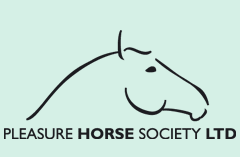In this short series of posts, we’ll aim to answer such questions as:
- How can this problem best be prevented and controlled?
- How can worms and bots harm horses and ponies?
- When is it best to worm horses and ponies?
INTRODUCTION
In the UK, there are four main parasitic types of worms which, together with bots, will be of major concern. These are:
- Bots – strictly speaking these are egg-laying flies
- Tapeworms
- Small Redworms
- Large Redworms and
- Roundworms
In later posts, we’ll look at these pests individually to consider the particular problems they can cause, their diagnosis and treatment. For this post, we’ll investigate the steps which can and should be taken to prevent bot/worm infestation.
PASTURE MANAGEMENT
This is the major area which will help prevent infestation and enable worms to be controlled effectively .
The pasture should be kept clean and owners/carers should adopt a regular targeted approach to deworming.
Each horse must be tested before the question of deworming arises. The purpose of the test is to determine how many parasite eggs are being shed by the horse in its droppings. This will identify which horses require treatment.
We say, above, that the question of deworming must be approached in a ‘targeted manner’. In general terms, this is because routine or ‘blanket’ worming has resulted in some of the more serious parasites becoming drug/treatment immune – much as with some human antibiotic resistance. The risk here is that at some point in the future, de-wormers may lose their effect entirely.
HOW DOES GOOS PASTURE MANAGEMENT HELP WITH WORM CONTROL?
Poor or contaminated pasture is a likely source of worms. For instance, the redworm may develop from a dung-pile egg to a larva in only 5 days. The larva can then travel a metre in dry conditions and up to 3 metres in the wet.
Pasture clearance of dung droppings is of vital importance. Whilst it’s true that an extremely hot summer or a cold harsh winter can kill off pasture worms but (perhaps until now) the weather in the UK is not usually sufficiently extreme to harm or kill the worms. Our mild wet weather usually just makes worm-travel easier.
GOOG PASTURE MANAGEMENT – KEY POINTS
- The most effective control method, as indicated above, is the Collection of Droppings.
- This is best done some twice a week especially when the weather is warm
- Muck heaps must then be kept well away for horse grazing areas.
- Wherever possible, do cross-graze with sheep and/or cattle. They consume, in particular, equine worm eggs and larvae and these, for the most part, can’t survive the sheep and cattle intestinal processes.
- Do not overstock – allow at least 1 to 1½ acres (0.4 to 0.6 hectares) for each grazing
- A combination of overstocking and overgrazing will lead to horses grazing close to the ground and droppings which is exactly where the eggs and larvae will be concentrated in the highest numbers.
- If say as part of horse weight management, you’re overstocking, the droppings should be collected and disposed of (as above) even more frequently.
- You must not harrow as spreading muck this way will spread the worms (and other parasites) over the whole of your pasture.
KEY POINTS TO WORM HORSES CORRECTLY.
- Horses should be weighed before worming to ensure correct dosages. You can weigh them at a Veterinary Hospital or on a local weighbridge. If these aren’t easily available, then a weigh-tape will give you a reasonably accurate figure. You should add 10% to any weigh-tape estimate.
- Tilt the horse’s head upwards after giving it the dewormer as all of the dose should be consumed. This should stop the horse spitting out the product. Please note that if your horse spits out or otherwise loses even a small amount, this increases the risk of worms and also worm resistance to the dose.
- If you don’t feel confident about administering a dose, then you can always seek assistance or practice using clean empty syringes. The latter will help getting the horse used to the procedure.
WHICH HORSES ARE MORE PRONE TO WORMS?
- Younger horses have less natural or inbuilt immunity to infestation than older horses. Consequently, they are more likely to carry higher parasite ‘loads’ and drop more eggs onto the pasture.
- Mature horses, if they are stable continuously are unlikely to pick up large or substantial parasites because the worms are unlikely to complete their own life cycle.
- Whatever it’s ‘lifestyle’ or manner of keeping, you should never simply assume that your horse is worm-free. Eve short or shortish periods of grazing can lead to infestation.
- Small redworm larvae can develop in deep litter straw used for bedding
- It should be noted that Roundworm eggs which principally infect weanlings and foals can live for many years in both stables and non-pasture environments.
- All this said, the benefits to your horse of being regularly turned-out for his mental and physical health vastly outweigh the risks of parasitic infection.
- Finally, you will significantly reduce worm risk by proper and appropriate horse, pasture and environmental factors.
